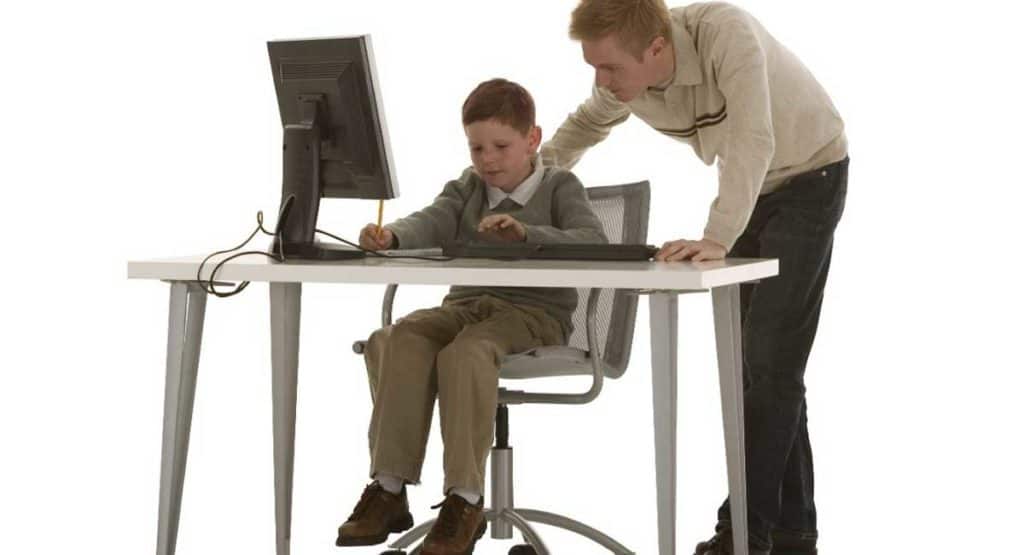This post contains affiliate links.
In recent times, the concept of homeschooling has become one of the most talked-about concepts parents and guardians alike have had to discuss with their kids. Depending on the nature of the child in question, most parents may opt for homeschooling as a better alternative to learning in a classroom with their peers.
As the name suggests, homeschooling refers to “home-based” teaching. It has been identified as one of the most common alternatives for parents that may have reservations when it comes to sending their kids to private and public schools. Oftentimes, the definition of this singular concept has made most people think homeschooling is carried out only at the home of the child or learner. Far from it, homeschooling actually gives parents or guardians absolute control over what's taught, how it’s taught, where and when it’s taught.
Unlike a traditional school setting, homeschooling tends to focus mainly on organizing a learning plan or schedule that will favor the specific child. For example, in a traditional school setting, every student is expected to learn the same thing, at the same time, and in the same format depending on their grades. This is completely different from what homeschooling is all about.

Mainly, homeschooling focuses or tweaks the learning plan or schedule to meet the needs of the child or learner. This fact has made it an ideal school alternative for parents and guardians with special needs, but also any children.
Since the classes and teaching style has been designed to meet the needs of the child, it tends to bring out the best in them. However, this does not necessarily mean that it's a better alternative to enrolling your kids in regular schools.
Here’s all the reasons why you shouldn't.
Legal Nature of Homeschooling
Before diving into why you shouldn't homeschool your child, it is best we discuss the legal nature of homeschooling. Contrary to what you've heard around, homeschooling is legal in all fifty states of the US, as well as in Canada. It is also currently experiencing an increase in popularity in New Zealand and Australia.
While legal, each state, province, and country have different legal frameworks in place to oversee this home-based learning. Most states will simply require you to report to the district office that you're homeschooling your kids while others may require you to meet certain predetermined requirements before you can actually homeschool your child. This makes this alternative to the traditional school setting quite stressful and complicated.
In addition to this, some states require parents opting for homeschooling to hold college degrees before they can homeschool their kids. In the absence of a college degree and time, parents are left with one option: to hire an experienced teacher or tutor. Some states also require parents, guardians, or teachers to present end-of-year assessment reports. Also, supervisors will be sent from time to time to oversee the entire homeschool process.

How Homeschooling Works
The concept of homeschooling is one that most families are not familiar with. As mentioned earlier, the definition of the word does not do it justice. Homeschooling basically involves schooling that does not take place in a traditional school setting. It doesn't necessarily have to be done at home as most people think, it can be done anywhere but parents must have total control of what is taught, how it is taught, where it is taught, and when.
As mentioned earlier, homeschooling is legal in almost every state of the country but there are legal frameworks in place to oversee how it is run and if children are being taught exactly according to the curriculum. Before families considering homeschooling for their kids can get their hands on the curriculum and other resources, they’ll need to do extensive research on state laws. Some states may require parents or guardians to file for an “intent to homeschool affidavit” while others may need you to provide a plan for yearly testing and grading. These requirements make homeschooling quite stressful for beginners.
Once you have successfully obtained a legal permit based on the requirements to be met by your state of residence, the next thing to do would be to get the curriculum, teaching method, and style suitable for your child. Homeschooling for most families may involve or include an online curriculum for some of the core subjects or a mixture of textbooks combined with other home-co-op classes. Homeschooling can also work when you mix the curricula for various subjects, using one school program for each class. As mentioned earlier, the state will send a supervisor to oversee the learning process and to ensure that your child learns everything at the right time. For yearly tests and grading, these supervisors will also oversee it.
What works for one family may not necessarily work for you. So, to get started, you need to take into consideration your needs and that of your child. Since homeschooling basically involves teaching children at their own pace, what works for one child may not work for another. You will be required to put in more work if you're to achieve success. This makes homeschool more complicated and capable of going wrong if the right style for each child is not incorporated.
Why You Shouldn't Homeschool Your Child
Does homeschooling sound like a perfect idea for you? Here are additional reasons why you shouldn't think of homeschooling your child.
It is Expensive
While homeschooling gives you total control of what your child is being taught, when, and where, the cost of homeschooling far outweighs any benefit you may think of. Here's how.
First, homeschooling is an expensive alternative to traditional schools. As mentioned earlier, before homeschooling your child, you have to report to the district. Depending on the state, you may have to sign a ton of paperwork and may be required to make a payment.
Let's say you manage to get the paperwork signed without any fee attached, you still have to spend thousands of dollars. To get started, you need a curriculum. According to the HSLDA (Home School Legal Defense Association), the curriculum will likely be the biggest and first expense you would have to make. HSLDA further states that parents and guardians spend between $300 to $600 per child annually on curriculum, school programs, games, and books.
Another area you have to spend money on is getting the right school supplies for your child. While you may argue that getting these supplies does not only apply to homeschoolers, you will find it surprising to know that it costs more for homeschoolers. Most states offer essential school supplies to students of public schools. Homeschoolers do not get this, you are expected to carry the financial burden alone. Only behind Christmas shopping, back-to-school shopping is currently the most expensive shopping time in the US — this means more money. According to an index report published by Huntington Bank, it costs an average of $1,000 to get essential school supplies for kids. While these costs may include an electronic device and internet, you may still end up spending as much as $600 to $700 per child.
Field trips are another way you spend money if you decide to homeschool your kids. In traditional schools, students going for these field trips are tasked with the responsibility of raising funds through various fundraiser programs. Depending on the grade, students may have to bake and sell chocolate bars to those in their neighborhoods. Older students may organize various fundraiser programs, in the process saving parents hundreds of dollars. For homeschoolers required to visit a particular place in the country as a requirement by the curriculum or district supervisor, the burden falls on you. Homeschooling families spend hundreds of dollars annually on field trips.
The cost of hiring a teacher or tutor, if you are not capable of teaching them yourself, is also quite high. While hiring a homeschool teacher has become incredibly easy with the development of various intermediary agencies, it is quite expensive to hire a qualified and competent homeschool teacher. Depending on the qualification and years of experience, homeschool teachers cost between $45 and $85 per hour on average. If, on the other hand, you decide to homeschool your child yourself, you are unknowingly cutting the family’s annual income. As a homeschool teacher, you are required to spend more time with your kids, meaning that you may have to give up your job to become a stay-at-home parent.
Less Socialising
One of the biggest challenges of homeschooling is that kids may tend to feel lonely. This could really affect their learning habits. This is especially why extracurricular activities are important for every homeschooler. Unlike traditional school settings, where students get to interact with their peers all day, homeschooling could be quite boring, especially if the child doesn't fancy the idea of homeschooling. To help your child, you may have to sign them up for various extracurricular activities or programs. These programs are mostly not free. This adds to the cost of homeschooling
Unfortunately, homeschooling may require you to sacrifice your career in order to teach your child. This does not just affect the family income but robs you of valuable personal time.

No Room for Competition
While competing with others academically and otherwise may have perceived negative effects on self-esteem and the emotional wellbeing of individuals, you may also agree that for people to succeed in any environment they find themselves, there should be healthy competition. This competition spurs students to get better grades, carry out tasks more responsibly, and also act right. This also teaches them vital life lessons they'll need to succeed in the real world.
Homeschoolers do not have this luxury and oftentimes become unmotivated to carry out even the simplest task. Being unmotivated to carry out tasks without any consequences will gradually become normal for your child and depending on future occurrences, this habit (lack of motivation) may become a part of his/her adult life. To prevent this from happening, it is best that you enroll your child in a regular school where they will learn to compete in a healthy manner with peers.
On the other hand, providing this form of competition is possible with homeschooling, but will inevitably require some form of networking that may add to your costs.
Homeschooled Children Sometimes Have Social Problems
Some homeschooled children do not possess the social skills needed to succeed in the real world. This is simply because they are not exposed to different types of people. According to a recent essay, these homeschooled children tend to have social problems because they do not have the same social skills as the other kids that went to regular schools.
While homeschooled children and those that attend regular schools may use the same curriculum and program, the former does not get to socialize like the latter. For example, students of regular private or public schools are exposed to various perspectives from others as most of their classmates and teachers all hold different opinions on issues, come from different backgrounds, come from a different race, and also from different homes. This interaction with people who hold different opinions from theirs helps them get better acquainted with how others think, and in the process makes them more tolerant.
Homeschooled children do not always get to enjoy these interactions. It decreases the chances of children socializing with peers, making it difficult for them to have friends their age. Although most of these homeschooled children may have siblings and relatives to interact with, this interaction cannot be compared to that of interacting and forming life-long bonds with someone from a different background.
No Freedom for Children
Unlike traditional school students who have the freedom to make friends and also visit them while at school, homeschoolers do not get to enjoy this luxury. Their freedom is being constrained by their parents who are always with them at home. This makes it difficult for these children to be themselves. Children need more than academic lessons to make it in the real world. They need to be able to make their own decisions without help from their parents. Being constrained at home will definitely not give them that opportunity.
Although most homeschooled children have the opportunity to attend field trips and maybe participate in other extracurricular activities, the time they spend on those activities is constrained by their parents. Unlike regular school students that get to enjoy lunch breaks, free periods, fundraiser programs, and school sporting events from time to time, homeschoolers only get to enjoy these things sparingly and most of the time under the supervision of their parents.
Importantly, students of regular schools tend to come in contact with new things while talking with peers. This helps to fuel their curiosity and some of the time, gives them an idea of what they could become as they grow older.
Being able to tell what's right and wrong is another rare gift that homeschooled children do not always get to enjoy. Since most of the decisions are made by either parents, guardians, or teachers, they are most of the time left with no say in how they are taught and cared for. They do not always have the privilege of picking classes they would otherwise love to attend.
All these things mentioned could help to mold them into socially awkward adults who are incapable of making their own decisions, incapable of tolerating the opinions of others, and incapable of communicating with others effectively.
You Are Not Qualified
While most states require parents to have a college degree if they're to homeschool their kids, some parents are still not truly qualified for this job. It is important to note that owning a college degree does not in any way make you a qualified or competent teacher. There are a dozen of ideas and concepts that may elude parents when it comes to efficiently educating children.
To efficiently teach students, most teachers have had to take extra classes in psychology and human relations. These courses help teachers better understand how to care for these students both academically and psychologically. These courses highlight the various punishments teachers can mete out to students without degrading or making them feel lesser of themselves. Some parents do not know this and oftentimes, they tend to make their children feel lesser by talking down to them.
If you decide to homeschool your child yourself, there's a possibility that you are not patient enough to go through these classes. At the end of every class, you may wind up screaming and pacing all around the house because your child does not understand a topic you've been teaching for hours. You wouldn't want that to happen to you, no one would.
Parents that are not qualified to take on this teaching job can outsource this job to a professional tutor or teacher, though. However, these teachers may not be as qualified and as competent as they claim to be and there is not always a framework to test this.
No Interaction With People of the Opposite Sex
Part of growing up involves kids discovering the opposite sex. Homeschoolers barely get to enjoy friendship with people of the opposite sex and this is because they are mostly at home, and even when outside, they are under parent or teacher supervision.
As a parent, you definitely want your child to interact with people of the opposite sex, go on dates, and eventually marry. Homeschooling children may make it difficult for them to meet and form close bonds with people of the opposite sex.
Being unable to form these bonds at an early age may make your child a lonely and timid adult who's unable to converse and show the right emotions to those of the opposite sex.
Explaining Your Decision to People all the Time
The concept of homeschooling, although existing for a long time, is not one that many people are familiar with, especially because of the negative implications as discussed in this piece. The unfamiliar nature of homeschooling will mean one thing — you constantly have to explain to people why you're homeschooling your child and why sending them to a private or public school is not ideal.
While most people will claim to not care about what others may think of them, this is not always so. Humans have this undying need to feel loved and accepted, especially by people you have high regard for. Having to explain your decision to these people time and again will wear you out both emotionally and physically.
Conclusion
Although most people opt for homeschooling for reasons best known to them, it is not always an ideal schooling method for your child, especially if you want them to excel in the real-world. While we have mentioned seven reasons why you shouldn't homeschool your child, the cost of doing so happens to be one of the biggest reasons.
Not only are you expected to give up your career to teach your child, but you will also have to spend more money than expected. The overall cost of homeschooling far exceeds anything one would pay at a public school in the country. In addition to this, we have discussed other reasons why homeschooling may not be the best option for your child.
